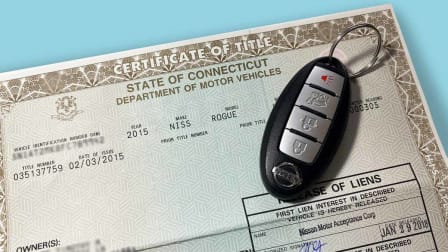Building a Better World, Together

Join with us to make a safer, fairer, healthier marketplace.
Making Child Car Seats Safer
In the U.S., a child in a vehicle is involved in a crash an average of once every 25 seconds. Child car seats reduce the risk of a fatal injury by 71 percent for infants and 54 percent for children ages 1 to 4—but CR and other safety advocates have maintained for years that child car seats could be even safer. Finally, in February, the National Highway Traffic Safety Administration put in place updated standards that will make car seats safer and more user-friendly for caregivers, who play a vital safety role each time they buckle in their kids. A key element of the new updates is a frontal crash test environment that better reflects real-world conditions, including stiffer seats and three-point seat belts.
These changes follow a CR-endorsed June 2022 update concerning side-impact protection. Formerly, any marketing claims made about side-impact safety were based on the manufacturers’ own testing. Now, uniform side-impact testing protocols establish a minimum level of performance.
Manufacturers have various deadlines for complying with the updated standards, but CR is urging that all of them be implemented as soon as possible.
The revised federal standards are a crucial step forward.
But CR’s own child seat testing, which began in the 1970s and was completely redesigned in 2014, is still more stringent and was designed not to set performance minimums but to distinguish and rate models that deliver additional margins of safety.
Learn more about how CR tests child car seats and how to choose the best car seat for your family.
71%
Amount by which car seats reduce the risk of infant deaths.
Protecting Your Privacy
What’s at stake: Many consumers know that much of what they do online is being watched and recorded, and that the information collected is often bought, sold, and used by marketers to sell us products.
What fewer of us may recognize is the vastness of this "surveillance economy," and the extent to which each of us is being targeted.
What CR is doing about it: To shine a light on these issues, CR recruited more than 700 volunteers to download the data that Facebook has collected about them and then send it to us for analysis. What we found was staggering.
Some 186,000 companies had shared data about the 709 participants. An average of 2,230 companies had sent data to Facebook about each of them. For several dozen, the number was over 7,000. Now CR is using these and other findings to urge legislators and regulators to reduce the overall amount of online tracking, and to give consumers both the right to opt out of data sharing and the tools they need to take advantage of those rights. For example, we’re calling on the Federal Trade Commission to move forward with its Commercial Surveillance and Data Security rule, which would limit what companies can do with our most sensitive personal data.
What you can do: Start by signing our petition to the FTC in support of that rule. Then consider using Permission Slip by CR, our free mobile app, which reveals the kind of data that companies collect. Then, if you choose, a tap will tell each of the companies you interact with to stop selling your information or to delete your account entirely.
Recall Alert
Last summer, after several users of BlendJet 2 portable blenders reported battery fires and broken blades to the Consumer Product Safety Commission, CR decided to evaluate the device in our own labs.
When the blade assembly broke during our durability test, we called on the CPSC to take action and advised consumers to exercise caution. We amplified those warnings Dec. 19 after new reports of injuries emerged. Nine days later, BlendJet recalled more than 4.8 million of the devices. Get details on how to take part in the recall.
Editor’s Note: This article also appeared in the May/June 2024 issue of Consumer Reports magazine.



















